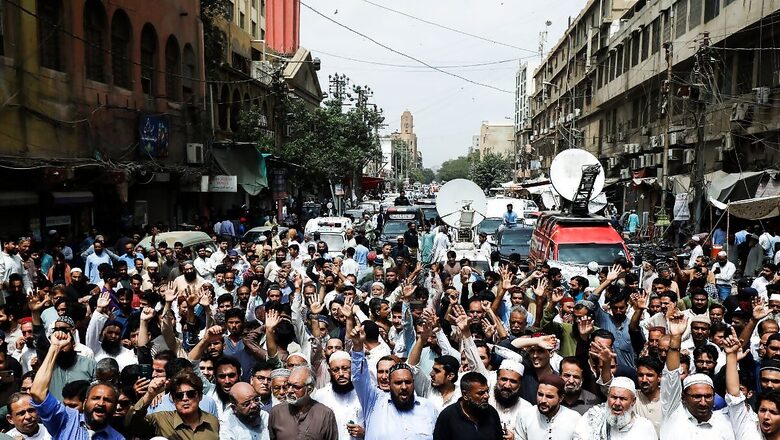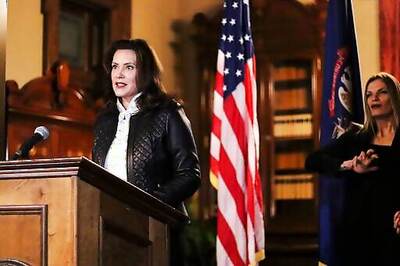
views
Several cities in Pakistan are witnessing protests by traders and common citizens against the rising electricity bills amid inflation and economic crisis.
The protests started last week in several cities including Peshawar, Karachi, Lahore, Multan and Rawalpindi after the average electricity cost has more than doubled for low- to middle-class households since May. The protests were also held in other cities like Attock, Quetta, Taunsa, Hyderabad, Nawabshah, Rahim Yar Khan and Multan.
There were reports of violence in Lahore where power distribution companies’ officials were attacked in multiple incidents. The protestors have refused to pay the exorbitant electricity bills for July saying that they are already struggling under high inflation of unemployment.
اٹک کے شہریوں کا بھاری بھرکم بجلی کے بلوں کے خلاف احتجاج،قیمتی سامان بیچ کر بجلی کے بل جمع کرا رہے ہیں، مظاہرین۔۔۔!!! pic.twitter.com/eqCTtN3UXK— Mughees Ali (@mugheesali81) August 25, 2023
In many cities, people took out demonstrations where they burnt thousands of electricity bills in protest. There have also been announcements made from many mosques, calling on locals to not pay their bills and protest against the authorities.
What has the Govt said
Pakistan caretaker Prime Minister Anwaar ul Haq Kakar held an emergency meeting on Sunday and directed authorities to take “concrete steps” within 48 hours for a cut in the power tariff.
Pakistan is currently being run by an interim government as the term of the Shehbaz Sharif government completed earlier this month. The interim government takes charge between the dissolving of the last government and the conduct of fresh elections.
جماعت اسلامی کی اپیل پر کے الیکٹرک کےخلاف شاہراہ فیصل پر عوامی احتجاج pic.twitter.com/iRRUacpojm— Syed Anwarullah Hussaini (@syedova26117291) August 25, 2023
Moreover, the country’s interim Information Minister Murtaza Solangi on Tuesday said the Energy ministry had finalised a list of proposed measures to provide relief to the people, and this would be presented in a federal cabinet meeting for approval.
What led to the massive power tariff?
The protests began after Pakistan’s National Electric Power Regulatory Authority (NEPRA) increased the tariffs by Rs 4.96 per unit last month. The hike was part of the conditions that Pakistan agreed to for a $3-billion bailout by the International Monetary Fund in June.
The IMF asked Pakistan to shore up tax revenue and ordered several reforms to be carried out to boost fiscal discipline. The bailout deal could be signed only after eight months of tough negotiations.
Kristalina Georgieva, Managing Director and Chair of the IMF, in a statement said, “The anticipated improvement in tax revenues is critical to strengthen public finances, and to eventually create the fiscal space needed to bolster social and development spending…In parallel, the authorities urgently need to strengthen energy sector viability by aligning tariffs with costs, reforming the sectors cost base, and better-targeting power subsidies.”
Apart from the IMF deal, the Pakistan’s authorities have also cited the elevated international energy rates in June behind the surge in tariffs.
Who is supporting the protests?
The protest in Karachi had the support of Jamaat-i-Islami (JI), who are demanding a reduction in the increasing electricity prices and additional taxes. Jamaat-i-Islami emir Sirajul Haq has announced a nationwide strike on September 2 against the inflated electricity bills.
The protests are led by common citizens, while traders and shopkeepers have also joined the demonstrations.


















Comments
0 comment